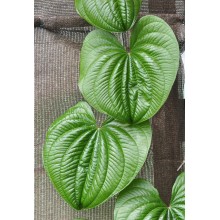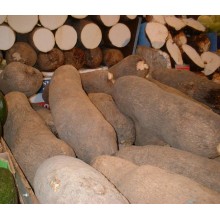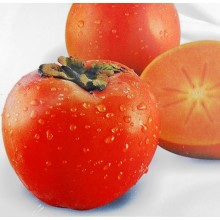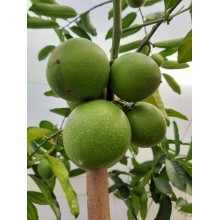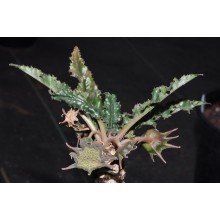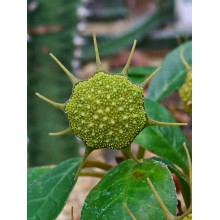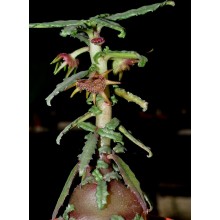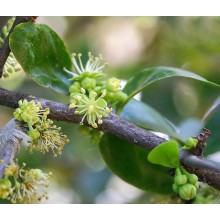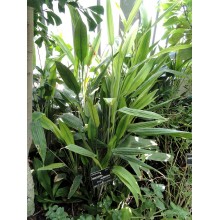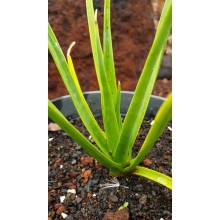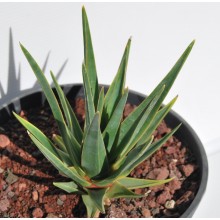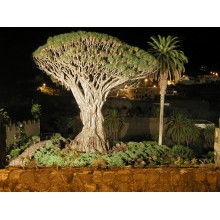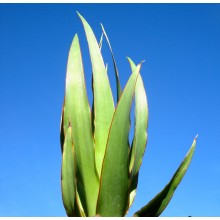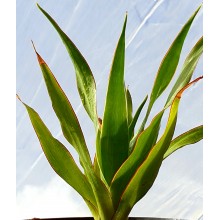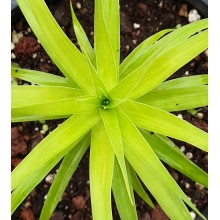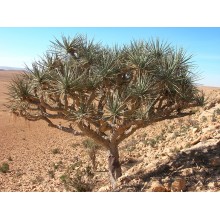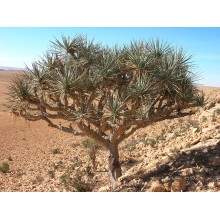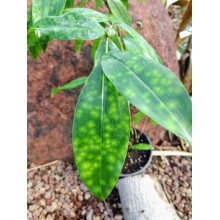General Plants There are 1881 products.

If you like exotic plants, you just came to the right place. Canarius offers the hard-to-find exotic plants which are seldom available in garden centres. Our shop has natural species as well as rare hybrids. We offer exotic plants from the Canary Islands.
Orders are sent to anywhere in Europe and also worldwide. Parcels will reach your home in a few days after shipping (but we also need some days for processing). Feel free to contact us if you have any questions.
Subcategories
-
Succulents
World deserts and dry areas are home to the most interesting plants. Canarius offers an increasing selection of succulent plants of maximum quality, because they are grown outdoors, under the full sun of the Canary Islands.
Succulents or "fat plants" are water-retaining species, adapted to dry conditions. They store succum (juice, water) in their leaves, stems or roots, and often show a stout and fleshy appearance.
-
Exotics
Exotic plants are species from other parts of the world, and they usually have ornamental qualities: a lush foliage, colorful flowers, unusual shapes... Here you can find a great variety of exotic plants: from Bromeliads and Heliconias, to pamls and houseplants.
Exotic plants do not have a particular use. Collectors buy this kind of plants for their rarity, for indoor or outdoor decoration, depending on their features.
-
Fruit, Herbs & Medicinals
Fruit, Herbs & Medicinal plants are focused on getting a better health. In this section, each type of plant produce healthy effects, both fruit trees (Feijoa, Pineapple, Fina de Jete...) and plants for health, such as Graviola, Aloe vera, Callisia fragrans...
In the normal metabolism of all living beings, the organism produces some substances from nutrients latent in the environment; some of these chemicals are part of the process in all (or almost) sort of species. Normally, the useful compounds are concentrated in some of its parts: leaves, seeds, flowers...
Find out your advisable plant and buy it online!
-
Special
On canarius.com we try to remove limits in the field of botany. On our online store we try to facilitate the purchase/sale of plants to anywhere in the world. That's why, we grow from the most common species to the most special plants, as we can see in this section.
-
Dioscorea polystachya - Chinese Yam
Dioscorea polystachya - Chinese Yam
Chinese yam is a large climbing plant with arrow-shaped leaves. The tubers are cylindrical, with lots of tiny bumbs., They edible and usually cooked, but they can also be eaten raw. The plant is hardy to -17 C.
21,00 € -
Diospyros kaki 'Rojo Brillante' - Persimmon
Diospyros kaki 'Rojo Brillante' - Persimmon
The “rojo brillante” is the most popular Spanish cultivar of astringent persimmon. These trees show short stature with large sized fruits. The skin is orange-red and the flesh is intense yellow-orange. No seeds!
42,00 € -
Diospyros nigra - Black Sapote
Diospyros nigra - Black Sapote
Diospyros nigra, the Black Sapote, is a species of persimmon that is native to eastern Mexico and Central America south to Colombia.
69,80 € -
Dorstenia foetida
Dorstenia foetida
Dorstenia foetida is small and "palm-like" in shape. Its caudex has a green-and-grey bark nicely dotted with leaf scars. Arching leaves form a rosette on the top of the stem.
10,80 € -
Dorstenia hildebrandtii crispa
Dorstenia hildebrandtii crispa
This is the most beautiful form of the widespread Dorstenia hildebrandrii. It is cute in all its stages, with a rounded, smooth swollen base which can be green to maroon.
17,40 € -
Doryanthes palmeri
Doryanthes palmeri
The giant spear lily grows as a moncarpic rosette like an agave, but has floppy spineless leaves up to 2 or 3 m long. It will eventually bloom with a bright red flowering structure, up to 3 to 5 meters tall.
94,00 € -
Doryopteris cordata
Doryopteris cordata
Doryopteris cordata is a species of fern known for its distinctive heart-shaped fronds.
21,30 € -
Dovyalis caffra - Kei apple
Dovyalis caffra - Kei apple
Small fruit tree native to Eastern South Africa to Tanzania.
45,20 € -
Dracaena aubryana
Dracaena aubryana
This shrubby West African Dracena has the growth habit of a Cordyline fruticosa, with glossy arrow-shaped green leaves. It is very adaptable: It grows outdoors in Mediterranean to Tropical Climates and it is also a good indoor-plant. Flowers matter even though they only flower for a few n¡weejs.
16,30 € -
Dracaena cinnabari
Dracaena cinnabari
The most extraordinary dragon tree is the one from the island of Socotra. Here we offer 3-4 years old seedlings.
83,40 € -
Dracaena cinnabari- LARGE
Dracaena cinnabari- LARGE
The most extraordinary dragon tree is the one from the island of Socotra. Here we offer 5-6 years old seedlings.
287,00 € -
Dracaena draco
Dracaena draco
h= 18-30 cm The mythical "Dragon Tree" of the Canary Islands is a tall, long-lived succulent tree.
15,00 € -
Dracaena draco ssp. ajgal
Dracaena draco ssp. ajgal
This is the new "Dragon Tree" from Morocco, discovered a few years ago in the SW Atlas mountains. It is a tall, long-lived succulent tree. It grows much like the more common Canarian subspecies, with some differences. Being an inland subspecies, it is possibly more hardy to cold!
36,00 € -
Dracaena draco ssp. caboverdeana
Dracaena draco ssp. caboverdeana
This new subspecies of the Canarian Dragon Tree was described in 2012. Its most visible difference is the blue-grey colour in the leaves.
57,20 € -
Dracaena ellenbeckiana
Dracaena ellenbeckiana
This Dracaena forms a large shrub, similar to a Yucca, branched from the base, 2-8 m tall.It is native to semi-evergreen bushland or open dry forest on rocky slopes, from Ethiopia to Uganda. It is often locally common at 1000–2100 m.
48,30 € -
Dracaena serrulata
Dracaena serrulata
12 years old, Leaf height 35-45 cm ! - This dragon tree comes from the southern escarpments of the Arabian Peninsula. It is a sparsely-branched tree, very rare and slow-growing, which can reach 5 m in very old specimens. Its stiff, sword-like leaves are densely congested at the tip of the branches.
290,00 € -
Dracaena serrulata - SMALL
Dracaena serrulata - SMALL
10 years old, Leaf height 25-35 cm ! - This dragon tree comes from the southern escarpments of the Arabian Peninsula. It is a sparsely-branched tree, very rare and slow-growing, which can reach 5 m in very old specimens. Its stiff, sword-like leaves are densely congested at the tip of the branches.
172,00 € -
Dracaena surculosa
Dracaena surculosa
This dracaena looks different from most others. It has showy mottled foliage held on thin bamboo-like stems. Also its white flowers are beautiful as they show up on sphaerical, fragrant inflorescences. It is native to the rainforest understorey of different West African countries and does well as a house plant in a bright room.
14,20 €
At the moment there are few products in this category General Plants




















